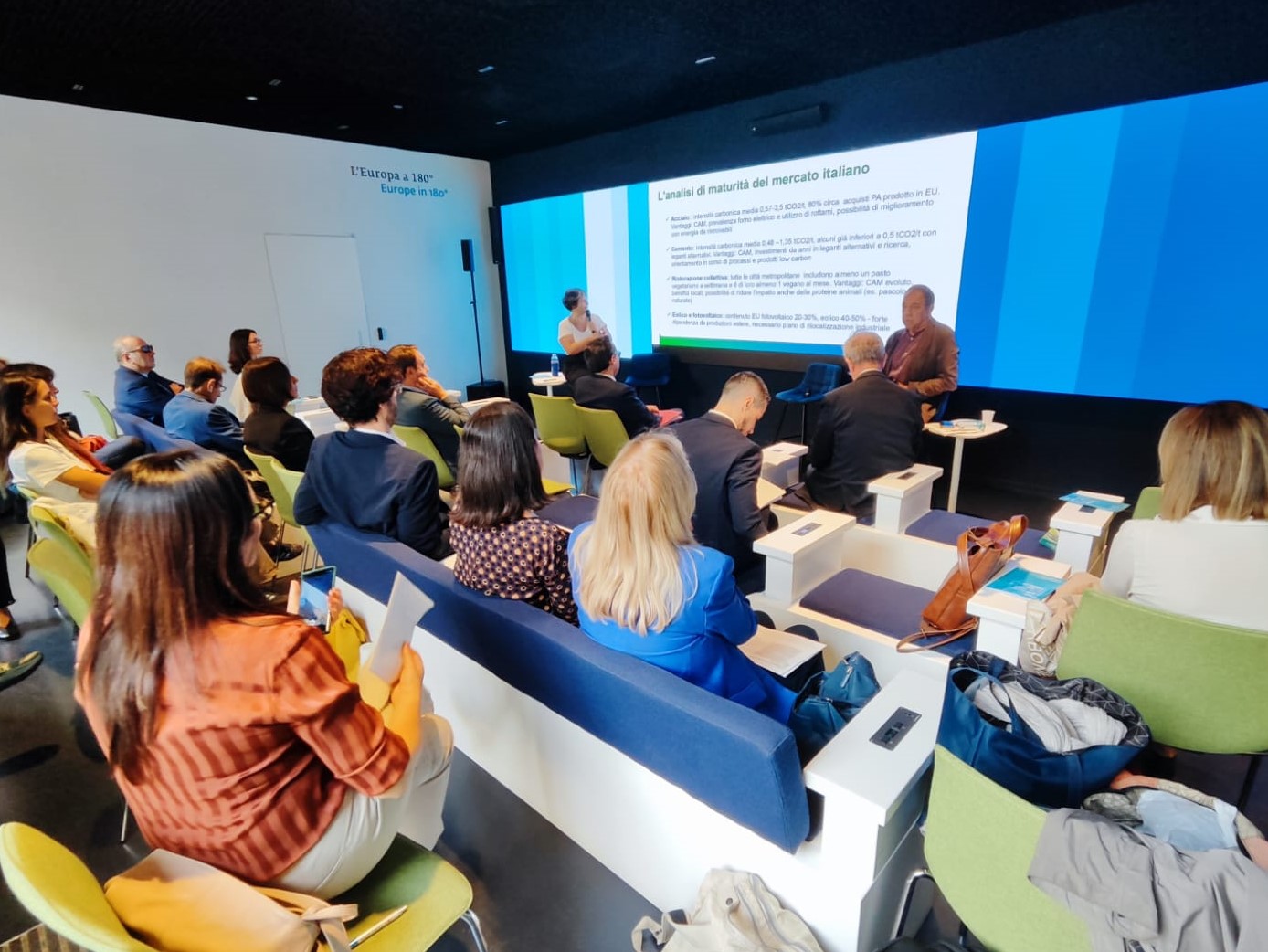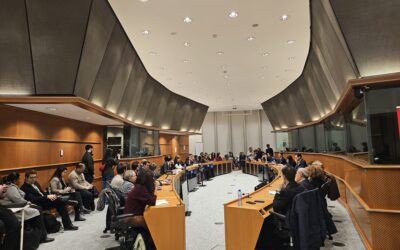At the Europa Experience – David Sassoli centre in Rome, Fondazione Ecosistemi brought together institutions, industry, and civil society to call for a stronger, greener European procurement system. The initiative, part of the BESA – Buy European and Sustainable Act campaign, comes as the EU revises its public procurement directive, a process due to conclude by 2026.
Europe faces decisive challenges: the ecological transition, global competition, and defending its social and economic model. Commission President Ursula von der Leyen recently announced a new “Made in Europe” criterion and incentives for EU-based production, underlining the urgency of boosting demand for clean European products. Meanwhile, growing protectionism abroad highlights the risk of falling behind.
In Italy, public spending exceeds €200 billion a year. Redirected towards sustainable goods and services, it could generate 50,000 new jobs and cut 2.2 million tonnes of CO₂ annually. This was the message from the Rome event, where political voices from across the spectrum – including Nicola Zingaretti (S&D), Nicola Procaccini (ECR), Annalisa Corrado (S&D), Eleonora Evi (PD), Filiberto Zaratti (AVS) – debated the future of green procurement.
Positions diverged on how binding the rules should be. Procaccini warned against “rigid obligations” that might raise costs, while Zingaretti argued that too much flexibility risks making rules meaningless: “This is not about spending more, but about investing differently.” Evi called for clear and binding standards, stressing that “environmental issues must be central to all political challenges.” Corrado highlighted the link between “social and environmental justice,” while Zaratti reaffirmed that sustainability should drive public choices.
The BESA campaign pushes for binding criteria in EU procurement: strict emissions limits in strategic sectors and minimum thresholds for European content. Its goal is to reward innovative companies, strengthen EU supply chains, and reduce dependence on unsustainable imports.
“Taxpayers’ money should support products that pollute less and create jobs in Europe, not those produced without environmental or social safeguards,” said Fondazione Ecosistemi.
With the EU directive under revision, Italy has the chance to bring its pioneering experience with Minimum Environmental Criteria (CAM) to the European stage – and to show that the Green Deal is not a cost, but a driver of competitiveness and growth.
The campaign also includes a petition open to citizens, to give political strength to this proposal ahead of the negotiations in Brussels.




